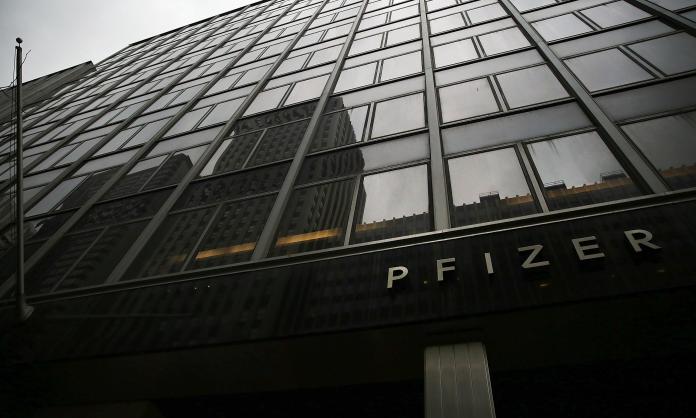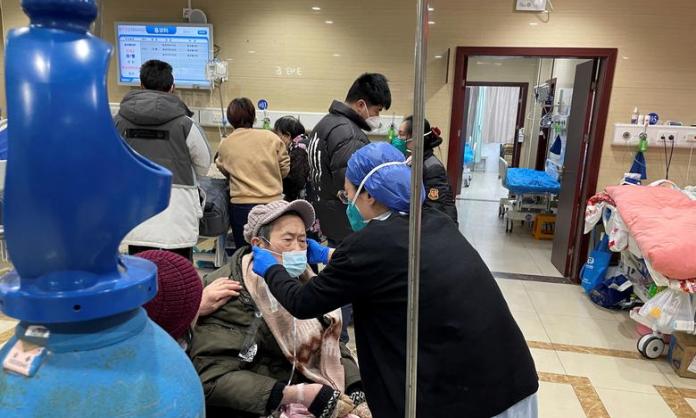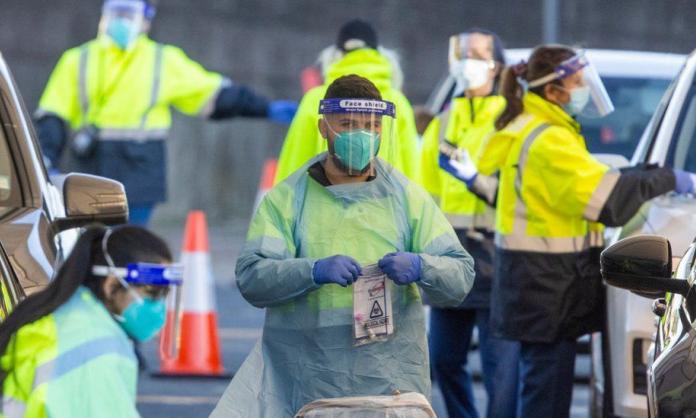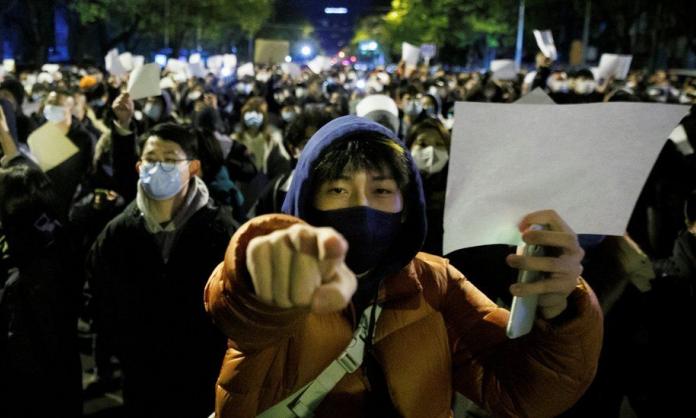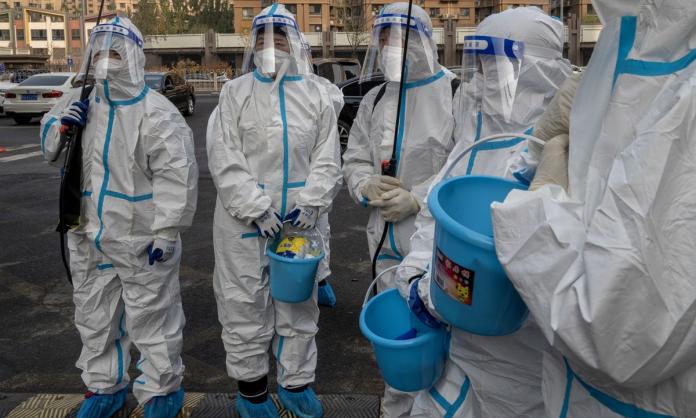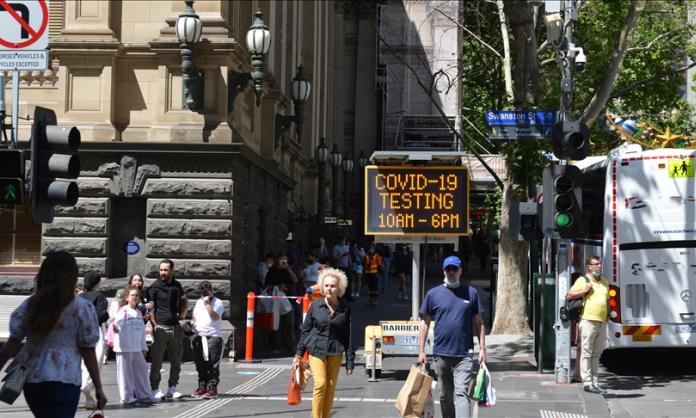2021 was a year of disaster for most of humanity, but for pharmaceutical companies it’s been a year of wonders. Profits are up. Pfizer expects to make up to US$26 billion this year from its COVID-19 vaccine, and Moderna US$18.4 billion. Moreover, the development of these vaccines has also provided these companies with a much-needed reputational boost. But Pfizer and the other pharma giants aren’t vaccine heroes. By demanding monopoly profits on their publicly funded vaccines, they are preventing urgent rollout of the life-saving medicine in many of the most needy countries, killing the poor while using the pandemic to extort the world.
Usually, when big pharma enters into public discussion, it’s because of the industry’s record of profit-driven atrocities. Turing Pharmaceuticals CEO Martin Shkreli became a poster boy for the industry when he gleefully hiked the price of a life-saving anti-parasitic drug by 5,000 percent, putting it out of reach for many. Purdue, producer of OxyContin, created a severe social crisis in the United States by aggressively promoting the use of addictive and deadly opioids, marketing them as a “wonder drug” for pain relief. In the past two decades, deaths from opioid overdose have increased almost sixfold, driving down average life expectancy in the US well before the COVID pandemic began.
But now, everything has changed. Pharmaceutical companies that quickly developed COVID-19 vaccines have become the pandemic’s unlikely heroes. Public opinion has shifted. A Harris poll conducted between January 2020 and March 2021 found approval of the industry had almost doubled, from 32 percent to 62 percent. The pharmaceutical industry has gone from one of the most reviled industries to one of the most respected.
What’s more, “Pfizer”, “AstraZeneca”, “Moderna” have all become household names. People share which vaccine they received and engage in tongue-in-cheek banter over which is the best, as one might argue about football teams or who is the best member of BTS. Literally thousands of TikTok videos are dedicated to the notion that Pfizer is the “hot person vaccine”. The Moderna vaccine has found its most ardent defenders among Dolly Parton’s fan base, who are loyal to the brand because the country superstar helped fund their vaccine’s development.
Generally, though, it is widely accepted that Pfizer is the status vaccine, the Louis Vuitton of COVID-19 inoculation. Tom Cox, a former Kansas state politician, coined the term “double-dosed Pfizer elites” to express this sense of being part of a special club. A writer for the Atlantic admits that the name of their college friends’ iMessage chat is “Pfizer gang”.
There’s something truly disturbing about the branding and marketisation of life-saving medicine. A life-or-death struggle to vaccinate the globe and save millions of lives ends up looking like the cola wars of the 1980s. But competition between vaccine manufacturers isn’t some cutesy rivalry to win hearts and minds. It’s a brutal economic war to carve up markets and maximise profits, in which millions of unnecessary deaths are regarded as inevitable collateral damage. Pharmaceutical companies aren’t the “unlikely heroes” of the pandemic; they are its greatest villains. Through the twisted logic of the capitalist market, companies like Pfizer have become the main obstacle to mass vaccine production.
These corporations have benefited from the collective ingenuity of thousands of scientists and health experts, along with billions of dollars in public development funding—and then privatised the end product. Intellectual property laws allow corporations to block countries from using the research to produce cheap vaccines and increase the rate of vaccine rollout.
This monopoly over production, protected by patents, exists to allow pharmaceutical companies to price-gouge. A group of campaigners from the People’s Vaccine Alliance have calculated that the cost of vaccinating the world against COVID-19 could be at least five times cheaper if pharmaceutical companies weren’t profiteering from their monopolies.
The human toll is unspeakable and, predictably, concentrated in the underdeveloped world. With the virus still raging through India and Latin America, Pfizer and Moderna have sold more than 90 percent of their vaccines to rich countries, where they can charge up to 24 times the cost of production. As of the beginning of August, the vice-president of the World Bank reported that only 1.1 per cent of people living in poor countries have received even a single dose of any COVID-19 vaccine.
In 1974, a report titled “The Baby Killer” made the name of Nestlé, the multinational food and drink manufacturer, mud for decades. Nestlé was condemned for encouraging mothers in the Third World to rely on its baby formula products, which are less nutritious and more expensive than breastmilk. The company did this by pioneering many of the techniques that pharmaceutical companies today use to push their products. Nestlé’s sales representatives dressed as nurses and were sent out to some of the poorest communities on the planet. They offered free samples, and gave bribes to clinics and medical professionals who promoted their product. Nestlé knowingly ignored the fact that many parents had to mix its formula with contaminated water, leading to the spread of fatal diseases. The mass proliferation of baby formula through the developing world caused the mass death of children, and a boycott that lasted for decades was launched against Nestlé in 1977.
For obstructing vaccine production in the time of a global pandemic, Pfizer deserves to be made into the Nestlé of the 21st century, one of the most loathed corporations on the planet. Pfizer should be up there with oil companies like Shell that spit toxic sludge over poor communities and into ocean systems. They should be hated as much as Lockheed Martin, whose bombs destroy school buses in Yemen.
The “Pfizer Pfam” farce shouldn’t blind us to these realities. It’s time to start naming Pfizer for what it truly is: a bloodthirsty vaccine criminal.




